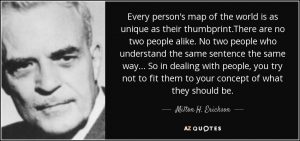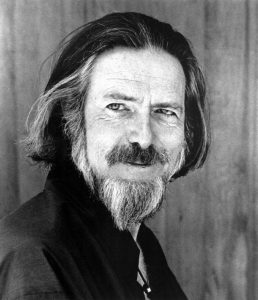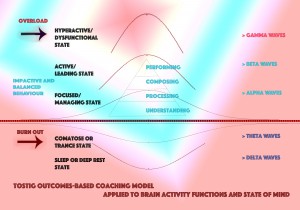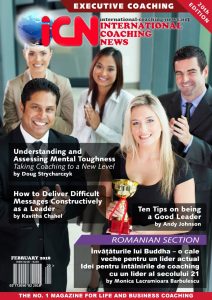Being Here – or There?
Our words and actions – even the smallest ones – affect our state of mind.

A research paper recently published, conducting a textual analysis of 63 Internet forums (over 6,400 members) used linguistic inquiry and word count software to examine “absolutism” at the linguistic level. Its results provide clinical evidence of how several features reflect meaningfully the state of mind of the speaker or writer.
This will not come as a surprise to language teachers, to counsellors, or to coaches who pay attention to the words their clients use. Some years ago, James Pennebaker’s excellent and provocative book “the Secret Life of Pronouns” engaged us in this topic, and – long before – the founder of Hypnotic therapy, Milton Erickson wisely stated “The map is not the territory” – in other words, the way I see the world is not necessarily the world itself, only my personal version of it filtered by my words and images and feelings (and those handed to me).
Nowadays there is a lot of faith put in positive thinking, and this is not so new…
“On how one orients himself to the moment depends the failure or fruitfulness of it,” Henry Miller asserted in his beautiful meditation on the art of living, “The Wisdom of the Heart”. This is not to be confused with coaching that tries to impose a glamorous target-oriented “successful” way of fitting in, viewing unhappy people as self-sabotaging, and as Susan Scott has asserted, toxic to the organisation that they work in. While not disagreeing with the importance of “Mastering the courage to interrogate reality” and the emphasis on truthfulness to oneself, I find the insistence that being unproductive is something to be confronted with brutal non-compromise to be disconcerting where creative solutions are concerned.

Our constant escapism from our own lives is our greatest source of unhappiness.
Today’s Millennial generation – anxious to impress and to succeed at the expense of the deeper more fulfilling aspects of life – might think of the advice given by the famous Danish philosopher, Kierkegaard, who was only thirty at the time he wrote them. He began a chapter of his altogether indispensable 1843 treatise “Either/Or – a Fragment of Life” with a powerful observation – so relevant today, amidst our culture which considers being busy and forever dwelling on the mistakes of the past and the high goals of the future to be a badge of honour:
“Of all ridiculous things the most ridiculous seems to me, to be busy — to be a man who is brisk about his food and his work.”
In the chapter “The Unhappiest Man” he wrote “One is absent when living in the past or living in the future.”
We should not be, as the great Alan W Watts described “The working inhabitants of a modern city … people who live inside a machine to be batted around by its wheels.”

We live today with such anxieties, reflected in our depressive language and sometimes futile attempts to reverse our sadness with New Age collective thinking and coaching “success” that we never find our true balance. Watts, in his book “Wisdom Of Insecurity: A Message for an Age of Anxiety” continued: “If we are to continue to live for the future, and to make the chief work of the mind prediction and calculation, man must eventually become a parasitic appendage to a mass of clockwork.”
Amusingly, in the film “Being There” the chief protagonist’s simple and naive words and childish world-view are taken as great wisdom, when they are merely misunderstandings. Yet Erickson reminds us that the truth emerges from the unconscious and not the frantic analysis of the rational mind. Neuroscience reinforce this message, since the over active mind racing in Gamma Wave exultant “highs” soon crashes down to the comatose state of burn-out and despondency.

States of Mind
Every so often new “models” appear incorporating the latest acronyms and buzz-phrases, and without doubt, from the groundbreaking 1979 “Inner Game” of Tim Gallwey, Sir John Whitmore’s 1992 GROW to the many more being designed in the present day, many present key words and phrases that help focus the conscious mind – even to the exclusion of all else. However we should strive as coaches not to crowd the mind with ever more models, but to enable new and creative forms of words; not to constrict by imposing models that others have determined that may work for some – but not for the person in front of us.
In my article in the latest edition of iCN (International Coaching News) I make the case for a truly embodied approach to listening, thinking, communicating and acting.








